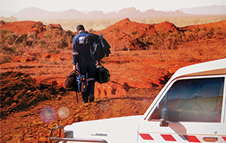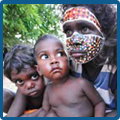Case Study:
Solomon Islands
Background
The Australian Government, in conjunction with the New Zealand and other Pacific Island Governments, is providing a range of support services to restore law and order to the Solomon Islands. This support covers military, policing and other Government aid.
Australian Federal Police and Australian Defence Force personnel are currently based in the Solomon Islands as part of the Regional Assistance Mission to the Solomon Islands(RAMSI). RAMSI was initiated in 2003 in response to a request for international aid by the Solomon Islands.
Challenges
- Remote location
- High quality comprehensive medical services required
- Culturally diverse environment
- Extremely limited local medical services





